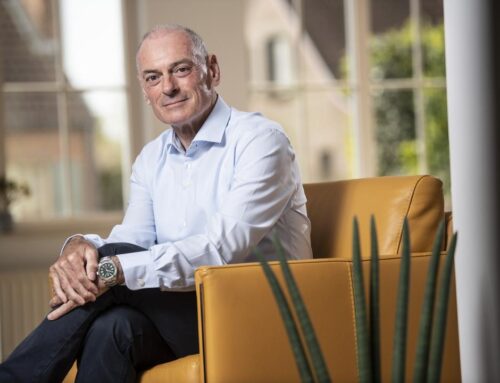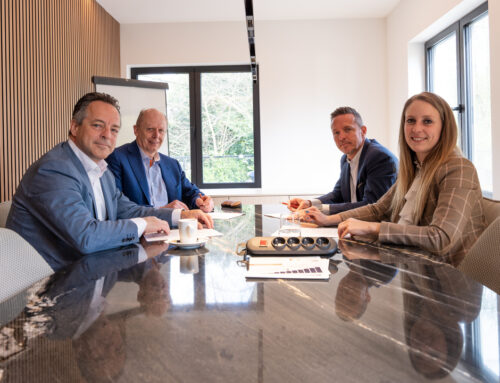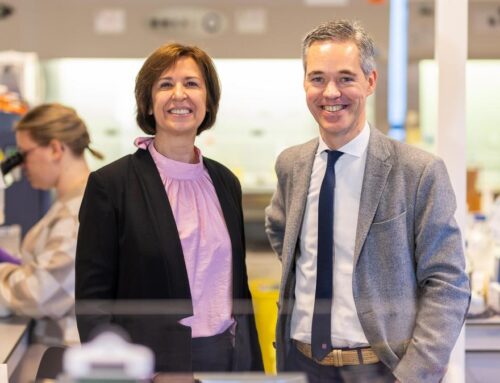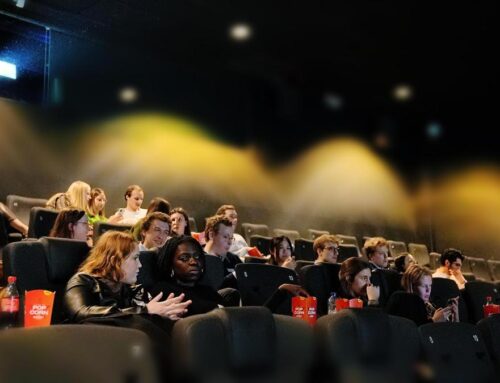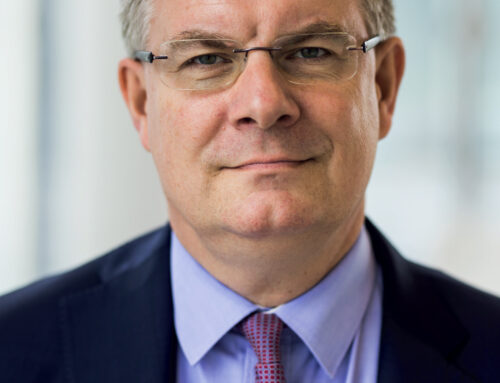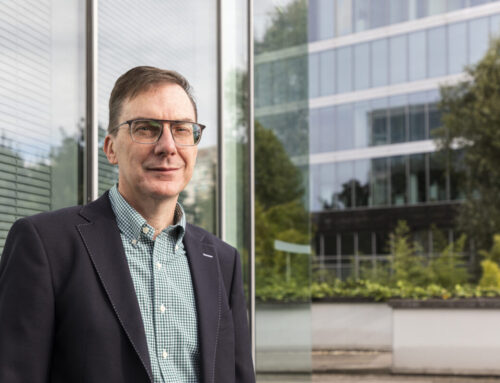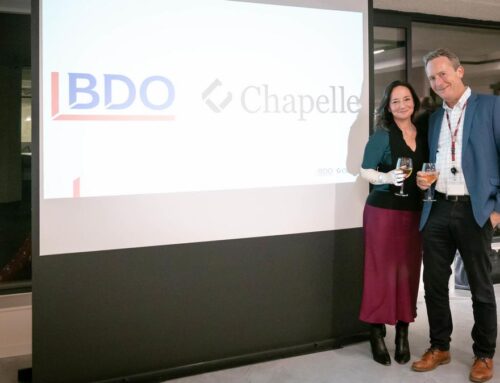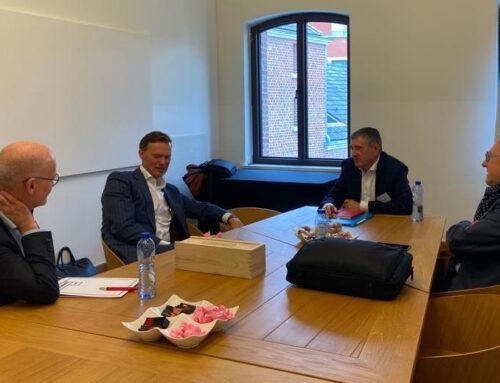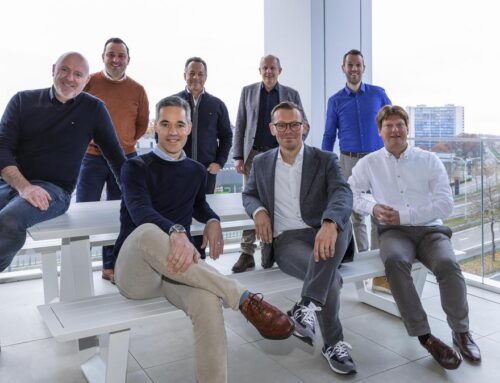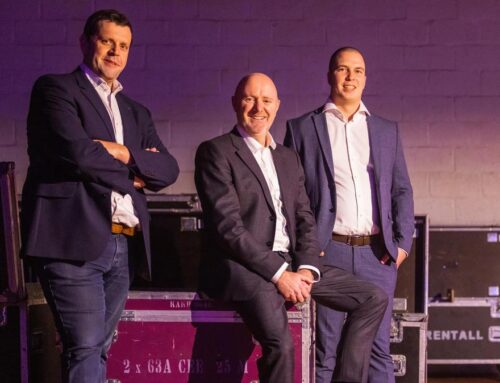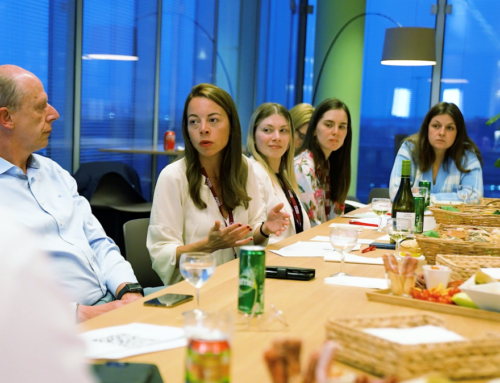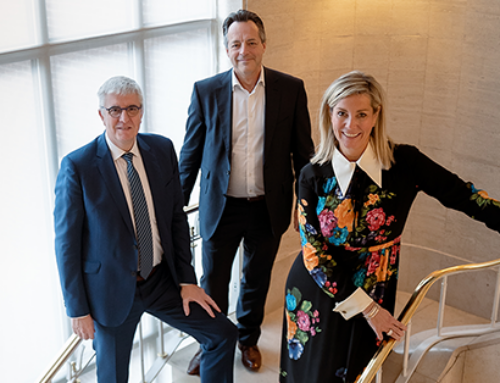Astra Sweets: “Switching in the short-term with a view to the long-term strategy.”
You can sit in a corner and cry or make the best of it with all your might. Astra Sweets resolutely chose the latter. The sweets producer did not panic because of the crisis, but it did bring about a shift in some accents in the short-term. “We tried to identify and capitalise on those opportunities that yield short-term results in order to offset the negative impact of the coronavirus crisis on certain market segments as much as possible. That’s in keeping with our no-nonsense culture.” In parallel, Astra Sweets continued to work on long-term strategic projects.
The fact that Astra Sweets has been able to weather the COVID-19 crisis successfully has a lot to do with the company’s long-term vision. Managing Director Ronald Luyckx: “Thanks to the versatility of our employees, we succeeded by switching and identifying those opportunities with the highest potential in the short-term. To name but one example: we were able to largely offset the decline in sales of pick-and-mix sweets as a result of the crisis by focusing on packaged sweets.”
To The Point (TTP): Our 7P research shows that the majority of companies maintained their innovation budgets during the COVID-19 crisis.
Ronald Luyckx (RL): “Astra Sweets is one of those. We opted for the strategy of ‘product leadership’ – innovation is our growth lever. We are succeeding in applying this strategy under a private label as well as with our own brand, Frisia. We believe in the strength of both. At the same time, we are transitioning from an internally production-oriented company to an externally market-oriented business. Through ‘Sweet Paradise’, for example – our channel for pick-and-mix sweets by which we are in direct contact with consumers – we can market and cash in on our own innovations more quickly under the Frisia brand. Both changes require significant investments in sales and marketing and in business development.”
TTP: With ‘quality’ as the main differentiator?
RL: “We do not have the ambition to become the biggest player in the sweets market by, for example, primarily focusing on ‘economies of scale’. We do strive every day to become the best sweets producer, offering the tastiest, top-quality sweets to consumers – and in this way creating value for their business partners in the various channels.”
TTP: Did the COVID-19 crisis not throw a spanner in the works?
RL: “Some segments were indeed hit, such as pick-and-mix sweets as well as certain export markets. The key was to compensate for that loss by accelerating the roll-out of certain innovations or new market opportunities. Of course, cost-effectiveness remains important, but without jeopardising the long-term return on investment of certain innovations. The so-called ‘drip-feed method’ of cutting costs is certainly not always the best solution.”
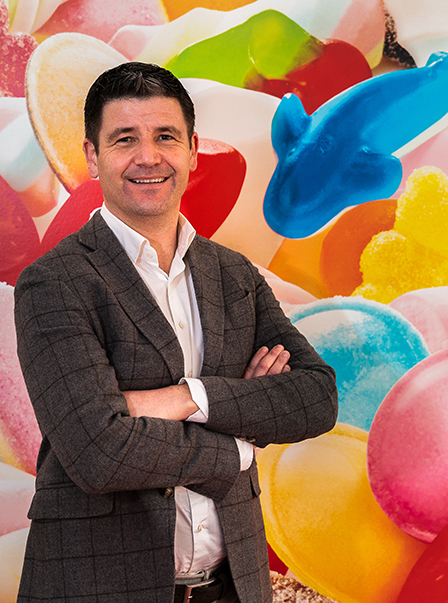
“Purpose through action’ is key to Astra Sweets.”
TTP: During the outbreak of the pandemic, caring for your people was a top priority, according to your 7P diagnosis (7P Diagnostic Tool, read the article ‘How healthy will your company emerge from the COVID-19 crisis?’).
RL: “For our production workers, the main thing was to create a working environment in which they felt comfortable and safe knowing full well that each employee experiences the coronavirus situation very personally, both privately and in the workplace. Good communication is essential.
For white-collar workers, teleworking became the new normal. It seems obvious, but it isn’t. In addition to the dynamics at the departmental level, cross-functional collaboration is fundamental in Astra Sweets’ strategy. Thorough project management is an essential element of our no-nonsense approach, in which you challenge the employees themselves to actively participate in the interpretation and development of the strategy. This project-based work cannot be organised as powerfully without face-to-face contact. On the other hand, it also provides support during teleworking.”
TTP: So the bottom line is no ‘product leadership’ without ‘people leadership’?
RL: “People make the difference between a strong company and a mediocre company. Obviously, we believe we make better products than our competitors, but not only because of our advanced technology. The know-how of our people and the collaboration between them are fundamental. Even more so in a ‘product leadership’ strategy than with a ‘cost leadership’ approach. That’s why we are now strongly committed to cross-functional collaboration and bringing together employees from different disciplines to stimulate cross-fertilisation.”
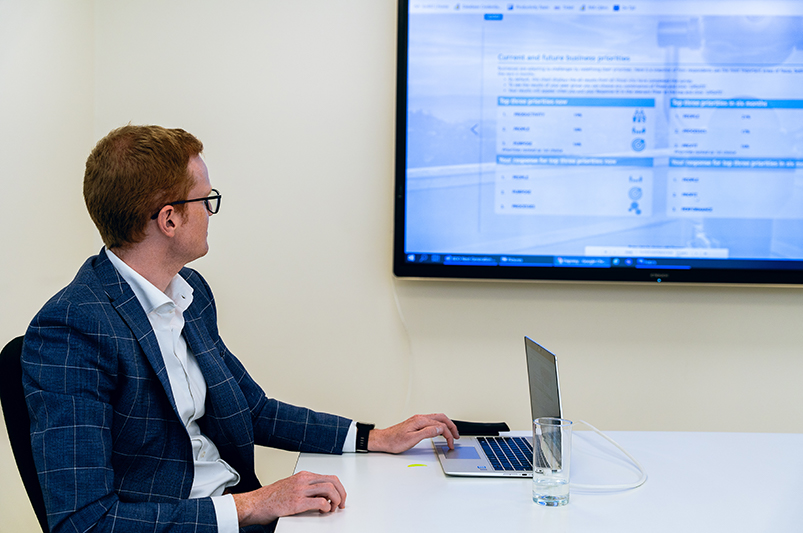
“Thorough project management is essential in the no-nonsense approach. You challenge your employees to actively participate in the interpretation and development of the strategy.”
TTP: The efficiency depends on your no-nonsense culture and open and direct communication?
RL: “I call that pragmatic entrepreneurship. Mission, vision and strategy are obviously important, but the essence and challenge are to identify value-enhancing opportunities that are in line with that strategy. In short, ‘purpose through action’ is key at Astra Sweets.
In addition to no-nonsense, respect, ownership and passion, entrepreneurship is one of our 5 corporate values. And we also actively apply that. From day 1 of the crisis, we continued to focus on strengthening our sales and marketing organisation and business development. And communication with our employees received maximum attention. Despite the coronavirus crisis of the past 12 months, our organisation is stronger than before.”
www.astrasweets.com
Astra Sweets inspires and innovates with a unique and wide range of sweets for consumers in over 25 countries. The sweets maker primarily develops and produces private label products, and it also has its own strong brand, Frisia. In 4 product categories – gums, mallows, UFOs and hard-boiled candy – the company responds to trends and develops new products to offer its customers growth opportunities and to surprise consumers.


